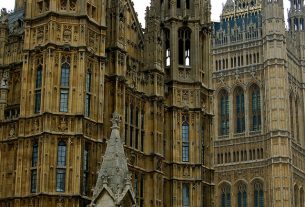On Wednesday, the newly-elected Labour government outlined its plans for renationalising the railways in the King’s Speech.
While the government has not committed to lowering fares, it has introduced a “best fare guarantee” to ensure passengers always pay the lowest possible price for their journeys.
Currently, Network Rail manages the infrastructure, and individual operators run passenger train services. However, in Scotland and Wales, passenger services are managed by devolved governments, and in Northern Ireland, the system is fully nationalised.
Labour plans to take nationalisation further by establishing Great British Railways (GBR), a publicly-owned entity that would oversee the rail system across England, Wales, and Scotland. GBR would gradually take over service contracts from private operators in England as they expire.
The government has not indicated that GBR would buy back train carriages, suggesting it will continue leasing them from private firms. There are no plans to nationalise rail freight companies; instead, GBR will support and promote these operators.
An independent watchdog, the Passenger Standards Authority, will be created to advocate for service improvements across various measures. However, Mark Simmons, deputy editor at International Railway Journal, notes that the success of these initiatives will depend on funding and support for major construction projects.
If Labour waits for existing franchise contracts to expire and then assumes control, as was done during the Covid-19 pandemic, this approach might not incur additional taxpayer costs. However, this would also involve taking on the operators’ debts, leases, and liabilities, including pension fund obligations and rolling stock lease contracts.
Labour claims its plans will save taxpayers £2.2 billion annually, but the government has not guaranteed that all these savings will be reinvested in the railways. Some train operators are already under public control through the government’s Operator of Last Resort.
Several train operators’ franchises will be up for renewal in the next few years, with core terms expiring sooner, potentially allowing the government to take control earlier. All operators’ contracts or core terms will expire by October 2027.




